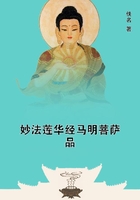With regard to her impiety--for such it should be called--it did not arise from arrogance, nor was it based in any way upon the higher learning of her period. Simply she did not possess the religious instinct. She understood it sympathetically--in /Spiridion/, for instance, she describes an ascetic nature as it has never been done in any other work of fiction. Newman himself has not written passages of deeper or purer mysticism, of more sincere spirituality. Balzac, in /Seraphita/, attempted something of the kind, but the result was never more than a /tour de force/. He could invent, he could describe, but George Sand felt; and as she felt, she composed, living with and loving with an understanding love all her creations. But it has to be remembered always that she repudiated all religious restraint, that she believed in the human heart, that she acknowledged no higher law than its own impulses, that she saw love where others see only a cruel struggle for existence, that she found beauty where ordinary visions can detect little besides a selfishness worse than brutal and a squalor more pitiful than death. Everywhere she insists upon the purifying influence of affection, no matter how degraded in its circumstances or how illegal in its manifestation. No writer--not excepting the Brontes--has shown a deeper sympathy with uncommon temperaments, misunderstood aims, consciences with flickering lights, the discontented, the abnormal, or the unhappy. The great modern specialist for nervous diseases has not improved on her analysis of the neuropathic and hysterical. There is scarcely a novel of hers in which some character does not appear who is, in the usual phrase, out of the common run. Yet, with this perfect understanding of the exceptional case, she never permits any science of cause and effect to obscure the rules and principles which in the main control life for the majority. It was, no doubt, this balance which made her a popular writer, even while she never ceased to keep in touch with the most acute minds of France.
She possessed, in addition to creative genius of an order especially individual and charming, a capacity for the invention of ideas. There are in many of her chapters more ideas, more suggestions than one would find in a whole volume of Flaubert. It is not possible that these surprising, admirable, and usually sound thoughts were the result of long hours of reflection. They belonged to her nature and a quality of judgment which, even in her most extravagant romances, is never for a moment swayed from that sane impartiality described by the unobservant as common sense.
Her fairness to women was not the least astounding of her gifts. She is kind to the beautiful, the yielding, above all to the very young, and in none of her stories has she introduced any violently disagreeable female characters. Her villains are mostly men, and even these she invests with a picturesque fatality which drives them to errors, crimes, and scoundrelism with a certain plaintive, if relentless, grace. The inconstant lover is invariably pursued by the furies of remorse; the brutal has always some mitigating influence in his career; the libertine retains through many vicissitudes a seraphic love for some faithful Solveig.
Humanity meant far more to her than art: she began her literary career by describing facts as she knew them: critics drove her to examine their causes, and so she gradually changed from the chronicler with strong sympathies to the interpreter with a reasoned philosophy. She discovered that a great deal of the suffering in this world is due not so much to original sin, but to a kind of original stupidity, an unimaginative, stubborn stupidity. People were dishonest because they believed, wrongly, that dishonesty was somehow successful. They were cruel because they supposed that repulsive exhibitions of power inspired a prolonged fear. They were treacherous because they had never been taught the greater strength of candour. George Sand tried to point out the advantage of plain dealing, and the natural goodness of mankind when uncorrupted by a false education. She loved the wayward and the desolate: pretentiousness in any disguise was the one thing she suspected and could not tolerate. It may be questioned whether she ever deceived herself; but it must be said, that on the whole she flattered weakness--and excused, by enchanting eloquence, much which cannot always be justified merely on the ground that it is explicable. But to explain was something--all but everything at the time of her appearance in literature. Every novel she wrote made for charity--for a better acquaintance with our neighbour's woes and our own egoism. Such an attitude of mind is only possible to an absolutely frank, even Arcadian, nature. She did what she wished to do: she said what she had to say, not because she wanted to provoke excitement or astonish the multitude, but because she had succeeded eminently in leading her own life according to her own lights. The terror of appearing inconsistent excited her scorn. Appearances never troubled that unashamed soul. This is the magic, the peculiar fascination of her books. We find ourselves in the presence of a freshness, a primeval vigour which produces actually the effect of seeing new scenes, of facing a fresh climate. Her love of the soil, of flowers, and the sky, for whatever was young and unspoilt, seems to animate every page--even in her passages of rhetorical sentiment we never suspect the burning pastille, the gauze tea-gown, or the depressed pink light. Rhetoric it may be, but it is the rhetoric of the sea and the wheat field. It can be spoken in the open air and read by the light of day.














